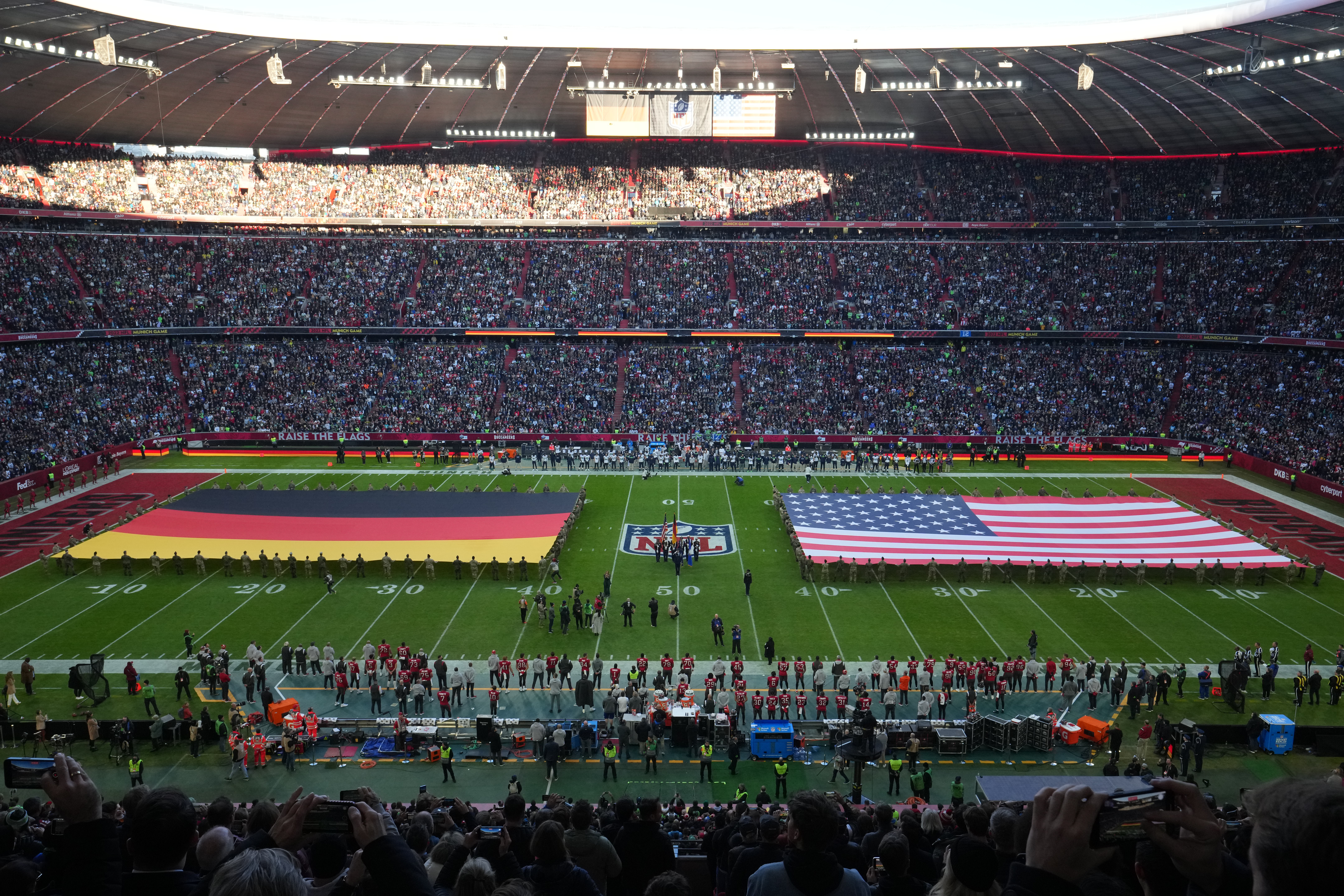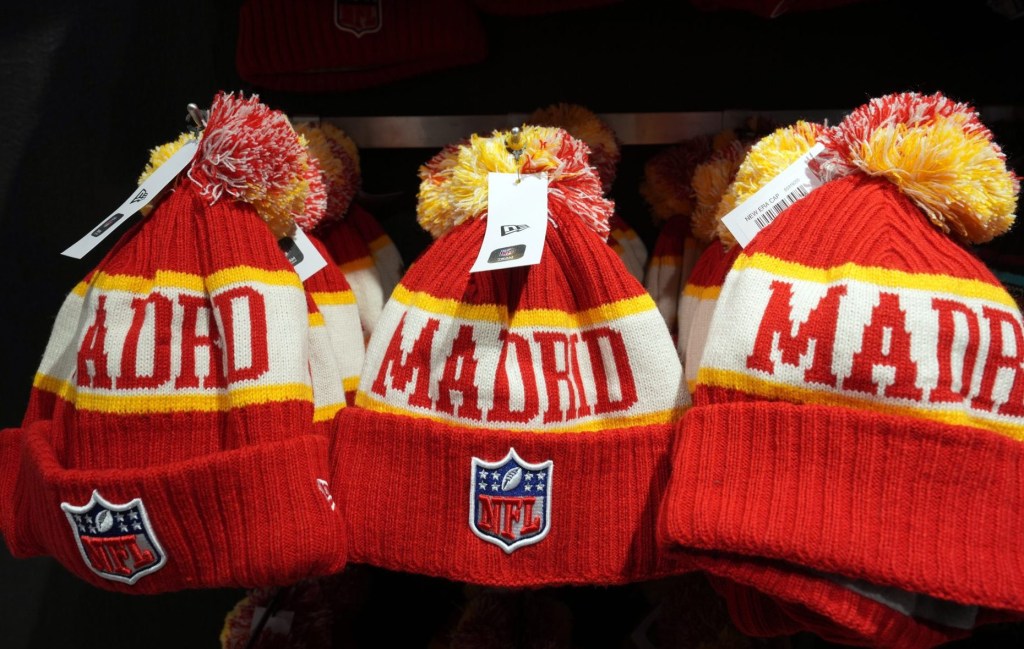PHOENIX — The NFL’s TV deals run through the 2032 season. The league’s collective bargaining agreement with the players doesn’t expire for seven more years.
Those are two main reasons why NFL Commissioner Roger Goodell’s multiyear extension appears to be a certainty, even if it wasn’t ready to be voted on at the annual league meeting that concluded on Tuesday.
Goodell has shown since taking over as commissioner, he can grow league revenues. The most ambitious and potentially lucrative way is international expansion.
“We don’t know if it’s going to happen in two years, five years, or whenever, but there’s going to be an international division,” one owner who spoke on condition of anonymity told Front Office Sports.
The NFL held its first regular season international contest in 2005, a game between the Arizona Cardinals and San Francisco 49ers in Mexico City. All 32 clubs have played internationally since, mainly in England.
There are five international games on the 2023 schedule, three in London and two more scheduled to be played somewhere in Germany.
“I think what we are focused on is building capacity so if there were that opportunity — whether a club wanted to consider relocation or potentially looking at expansion — we are in that mode,” said Peter O’Reilly, the NFL’s executive VP of club business, international, & league events. ”In London, where we’ve been for a long time, and now in Germany, we’re making sure we’ve got the stadium partners, the governmental partners, and the fan support to sustain that possibility.”
A four-team European division would be unprecedented.
The NFL has never expanded by more than two teams at a time (Carolina Panthers and Jacksonville Jaguars in 1995), and the league’s 32nd team (Houston Texans) was added in 2002.
There has been talk over the years of having one team in the UK that’d play in either the NFC or AFC East divisions.
“Having just one team in London could be problematic,” an owner said. “It does sound crazy, but it’d be more economical that way.”
Owners share expansion fees, which one source told FOS could be between $3 to $5 billion — well north of the $140 million fees charged for the Jaguars and Panthers. That would easily allay any concerns over teams having to share the media rights money — where each team gets nearly $400 million annually — with four more teams.
Plus, the expansion would lead to more lucrative international TV rights. Last month, the NFL announced a 10-year deal with DAZN worth a reported $100 million per season — a tenth of what Amazon pays to stream “Thursday Night Football.”
A league official declined to comment on if there are any outs in the DAZN contract like there are in the league’s current domestic broadcast deals. The NFL can opt out of those contracts three years before the existing 10-year agreements expire.
Another significant effort made to expand football in recent years is supporting flag football both in the U.S. and internationally.
Last year, the NFL teamed with the International Federation of American Football to create the Vision28 Group. The goal of the Vision28 Group is to have flag football a part of the 2028 Summer Games in Los Angeles.
“The International Federation of American Football is doing a tremendous job at really growing flag at an elite level around the world,” O’Reilly said. “We’re doing everything we can to build participation in this country by providing use of our biggest platforms to show we are all in on flag football.”
The platform is the Super Bowl, and the NFL used its commercial spot to feature Mexican flag football star, Diana Flores.
The NFL will return to Mexico with international games there once Estadio Azteca’s 2026 World Cup-related renovations are complete.
Until then, it’s all about Europe.








![[Subscription Customers Only] Jun 15, 2025; Seattle, Washington, USA; Botafogo owner John Textor inside the stadium before the match during a group stage match of the 2025 FIFA Club World Cup at Lumen Field.](https://frontofficesports.com/wp-content/uploads/2026/02/USATSI_26465842_168416386_lowres-scaled.jpg?quality=100&w=1024)





![[US, Mexico & Canada customers only] Feb 6, 2026; Riyadh, SAUDI ARABIA; Jon Rahm in action during the third round of play at LIV Golf Riyadh at the Riyadh Golf Club.](https://frontofficesports.com/wp-content/uploads/2026/03/USATSI_28173562_168416386_lowres-scaled.jpg?quality=100&w=1024)

![[US, Mexico & Canada customers only] Sep 28, 2025; Bethpage, New York, USA; Team USA's Bryson DeChambeau reacts after hitting his approach on the 15th hole during the singles on the final day of competition for the Ryder Cup at Bethpage Black.](https://frontofficesports.com/wp-content/uploads/2026/03/USATSI_27197957_168416386_lowres-scaled.jpg?quality=100&w=1024)
